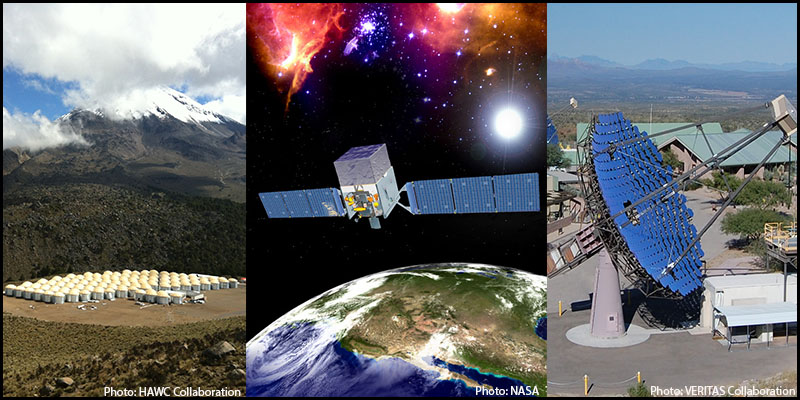
The second Fermi-VERITAS-HAWC workshop begins today in Madison, Wisconsin, at the University of Wisconsin–Madison’s Union South. The two-day workshop will engage physicists from around North America, encouraging discussion among the three different collaborations.
The complementary data of these three telescopes allows them to collaborate on multi-wavelength studies. HAWC, the High-Altitude Water Cherenkov Observatory residing at the base of the Sierra Negra volcano in Puebla, Mexico, is essential for the collaborative efforts. HAWC, which observes two-thirds of the sky during a 24-hour period, acts as an alert apparatus for other projects. HAWC can advise VERITAS, based in Arizona, on where to focus the instrument. HAWC and Fermi cover different parts the energy spectrum.
The University of Maryland, College Park hosted the first workshop of this kind in February 2014. The workshop is designed to optimize collaboration across the three projects through discussion of analysis techniques, understanding data flow, and sharing operational ideas and experiences.
The workshop will contain updates from each telescope, time-domain astrophysics analysis, and hands-on sessions. Professor of Physics and WIPAC scientist Stefan Westerhoff is hosting this meeting with support from the UW–Madison Department of Physics.
